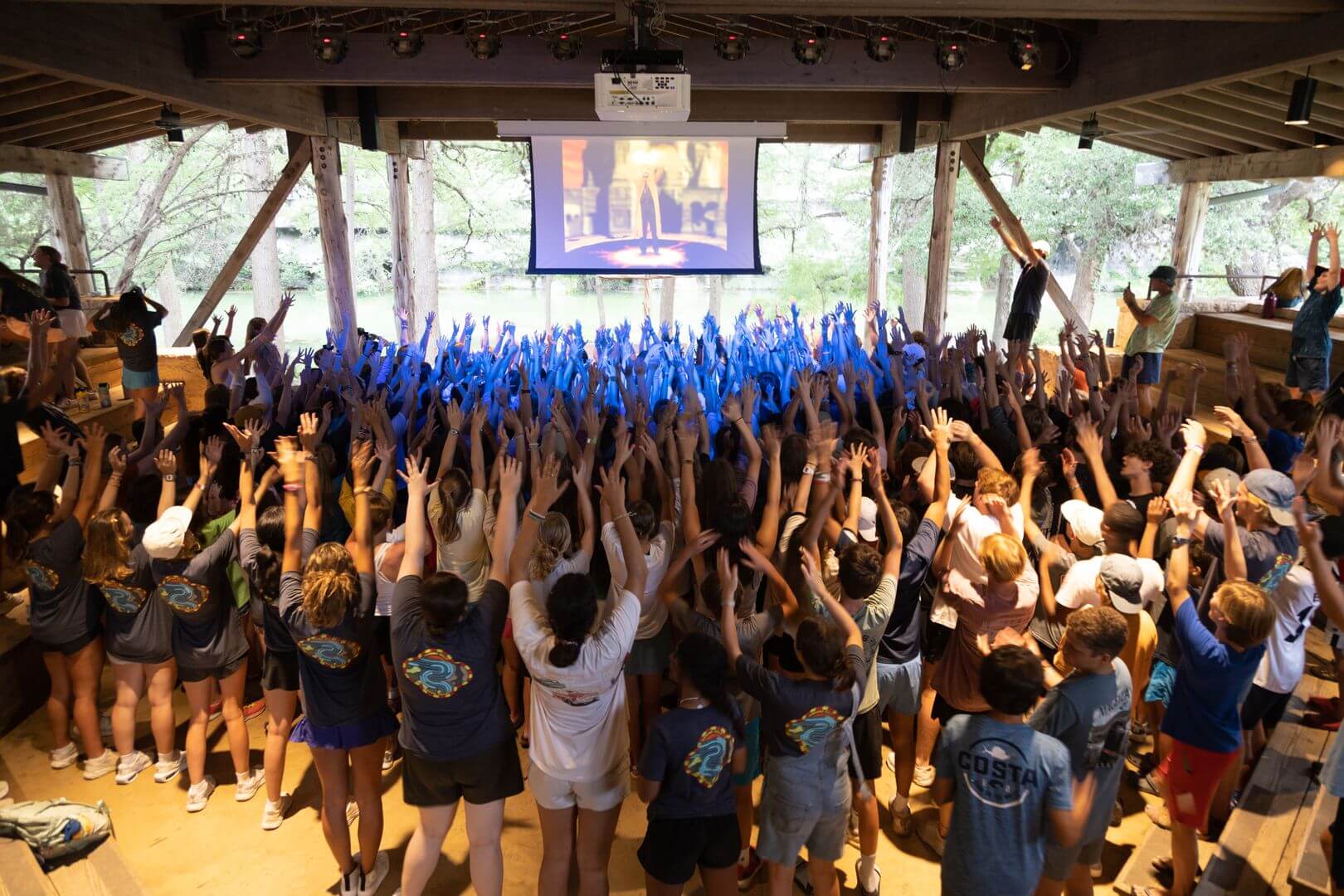
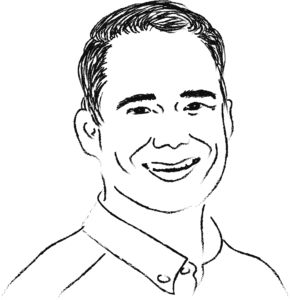
Dayton, |

Jacqueline, |

Tom, |

Molly, |

Amy, |

Audrey, |
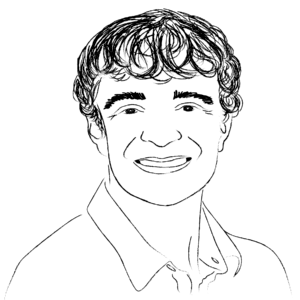
Ben, |
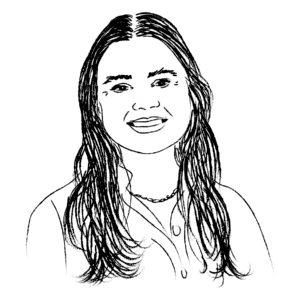
Holland, |
ILLUSTRATIONS BY LYNZ BRUCE
PHOTOS BY LLYC SUMMER STAFF
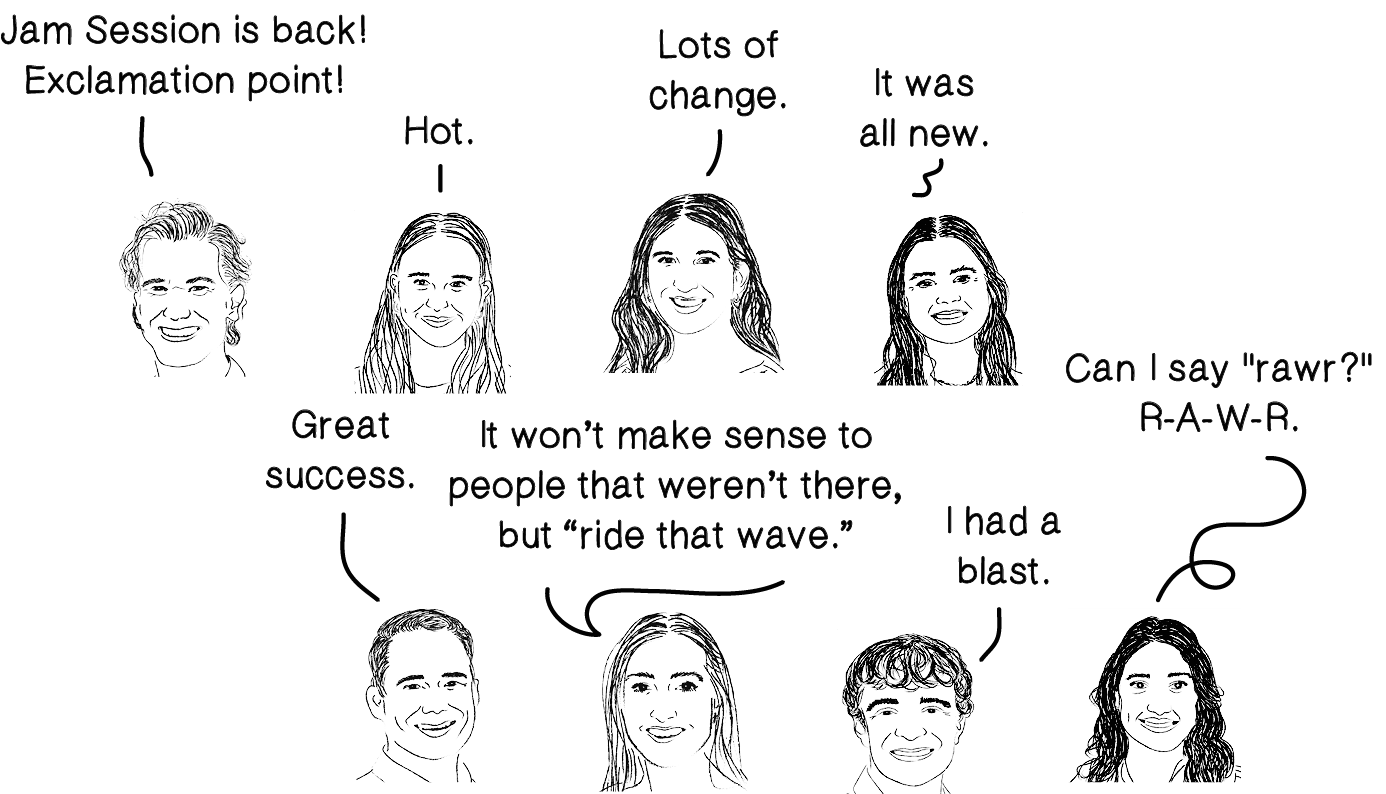
What’s that mean, Jac?
|
|
What are your takeaways from this summer?
|
|
|
|
|
|
Were there any new obstacles this summer?
 I mean, should we talk about staffing?
I mean, should we talk about staffing?
 Yeah.
Yeah.
|
|
Show of hands, who would say staffing was the hardest part of this last summer? [Five raise their hands.]
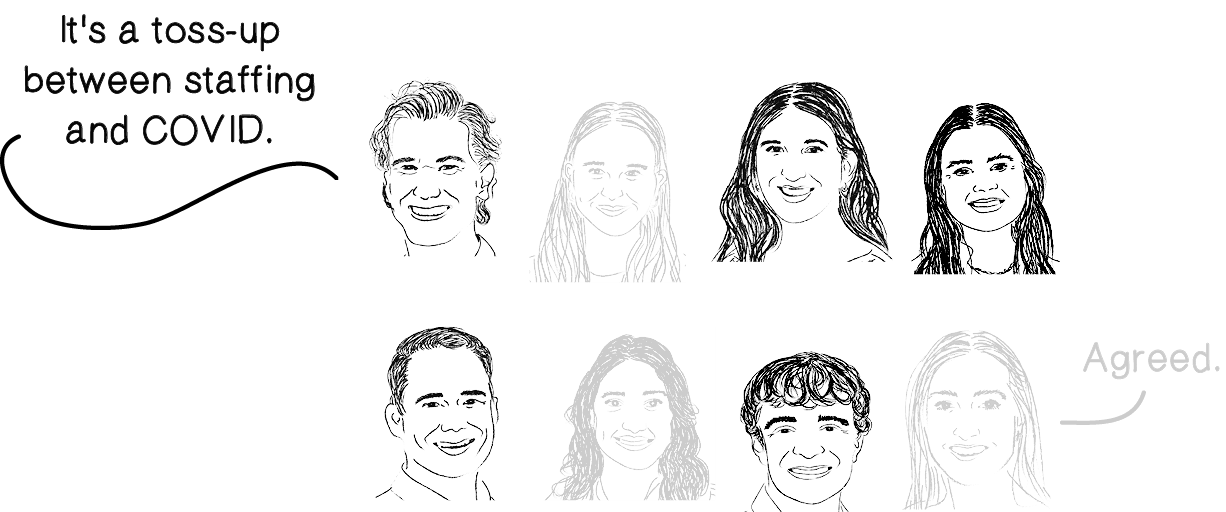
This was the first full summer since 2019, because of COVID. Have there been any noticeable changes in campers and staff since then?
|
|
|
|
|
|
|
|
Let’s shift a bit. Staff has come up several times already.
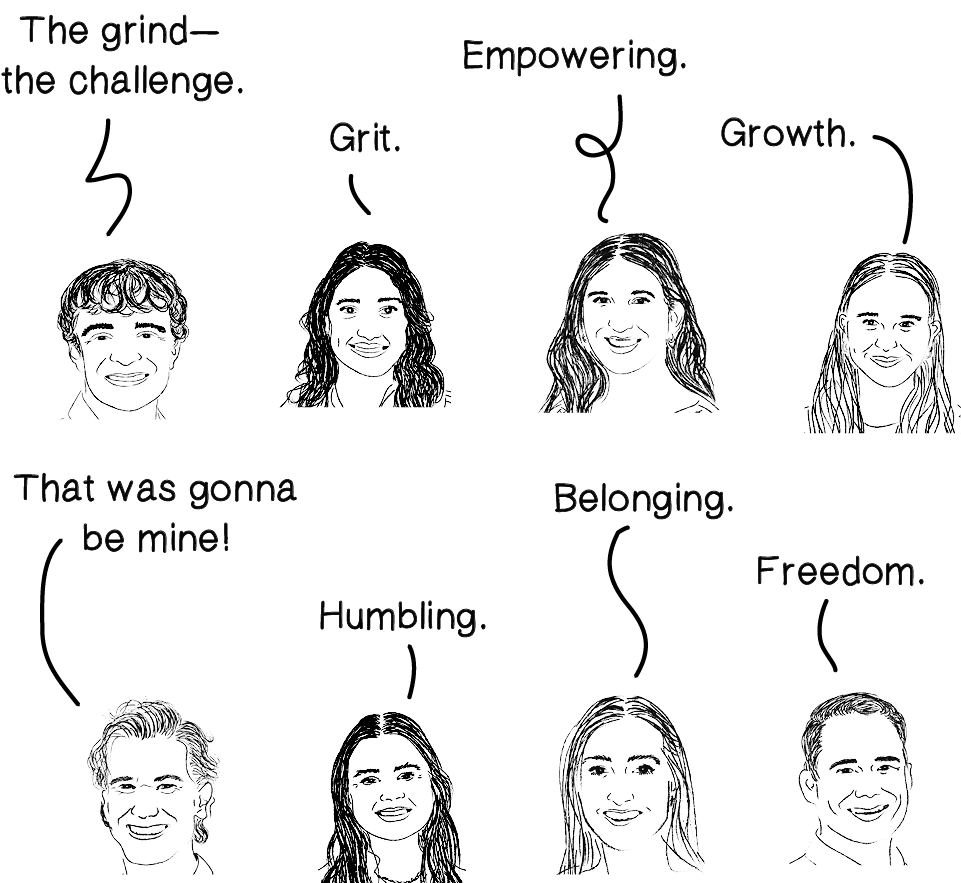
You’re saying a lot about different versions of growth, challenge, development. Why should people work through that at LLYC instead of other summer jobs and internships?
|
|
|
|
|
|
|
|
|
|
“Working at LLYC is a time for you to really dig into who you are, how you work, and how you work with other people. You don’t get that in a corporate internship gig.”
—Dayton, Singing Hills Director
Why do you think staffing was so difficult this summer?
|
|
|
|
|
|
|
|
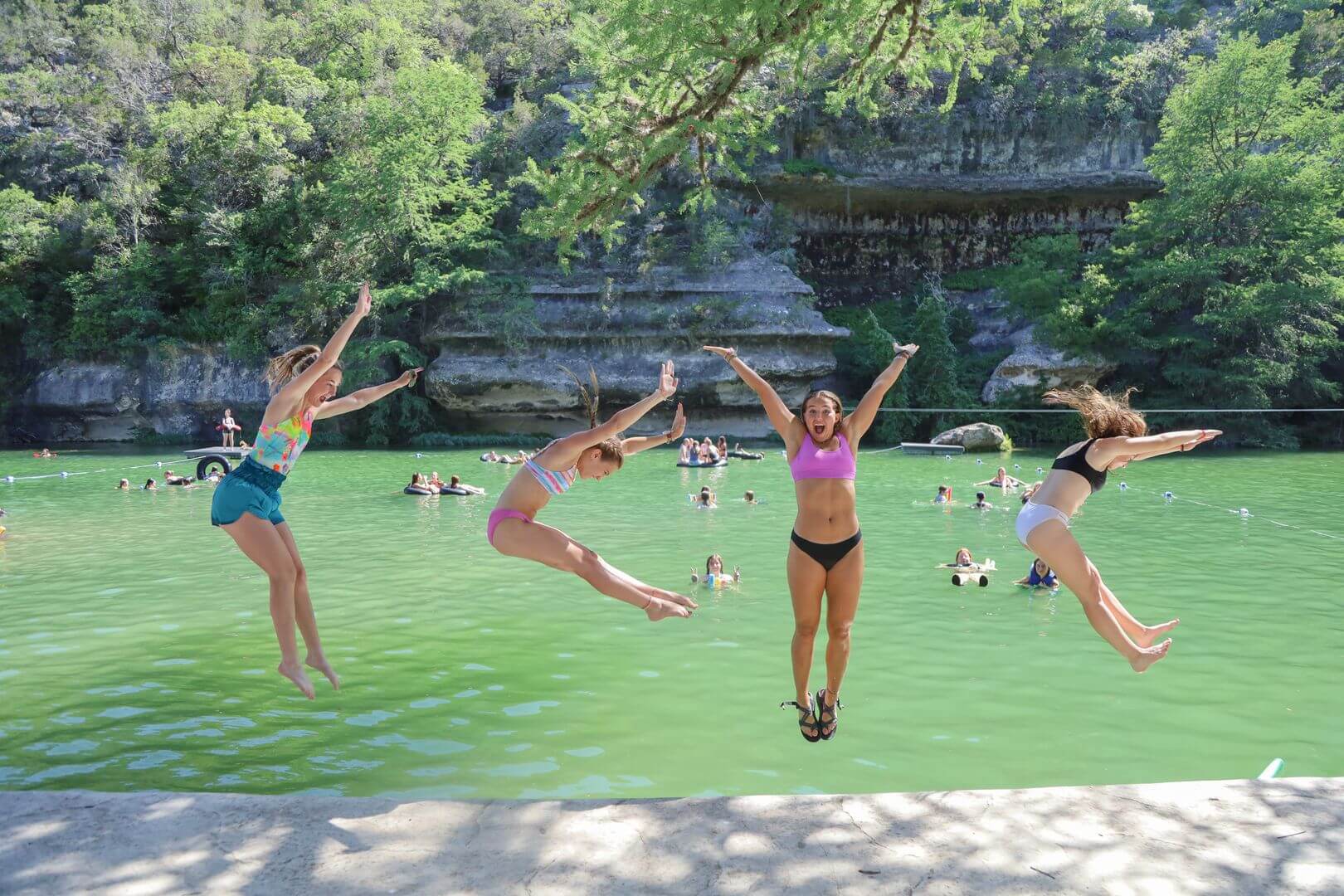
Back in March, several of you attended a retreat at Laity Lodge where you talked about the mental health of youth with organizations from across the country like the American Camp Association.
|
|
According to groups at that retreat, “LLYC is already leading the way for other camps across the country” in addressing mental health in youth. Why do you think that is?
|
|
Molly, you’re nodding in agreement.
|
|
Associates, some of you were in a seasonal role just this summer. Do you have anything you want to add to that?
|
|
|
|
|
|
Thanks, Audrey. Let’s zoom out a bit more as we wrap up. What do you wish more people knew about LLYC?
|
|
|
|
|
|

Continuing |

I agree with Ben. |

I genuinely |
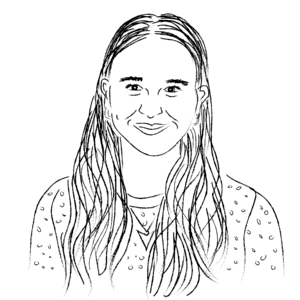
Carrying |
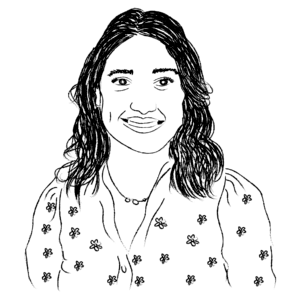
That I can help |

Providing a place |

This place is |

Acceptance. |

Fishing isn't always about getting a bite. Even for sixth-graders. Bite into this Outdoor School story on the importance of fishing.
Norma Quintero's Westside church, El Templo Cristiano, becomes an oasis of hope for San Antonio's Westside and neighboring communities.
How did paintings from Vienna end up on the walls at Laity Lodge? Read about a babysitting job that turned into a 30-year friendship.